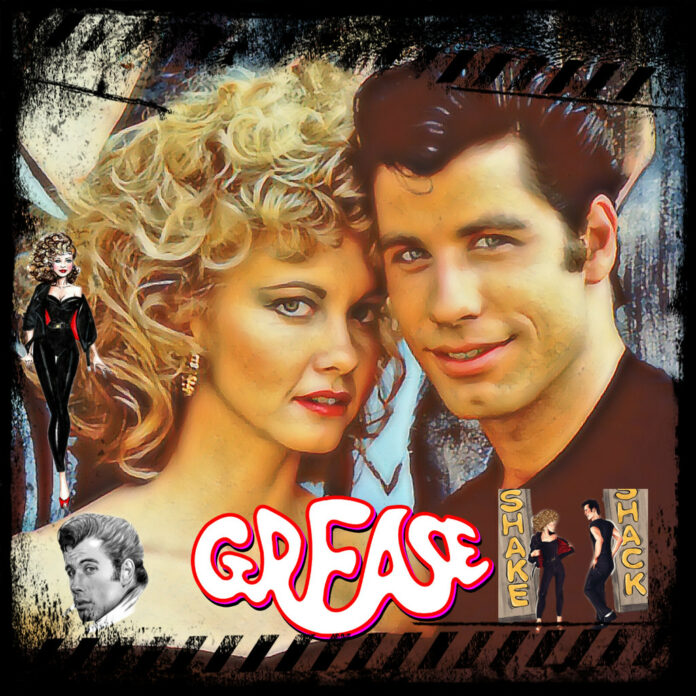In tribute to the late Olivia Newton-John
By CLARA FISCHER — arts@theaggie.org
If you are anything like me, you were raised by parents with an avid love for all things old school. Many of my earliest and fondest memories take place listening to songs from the ‘70s or watching retro movies — including one of the most successful movie-musicals to ever hit the big screen: “Grease.” This movie-musical stars Olivia Newton-John as Sandy and John Travolta as Danny.
As a kid, I can’t say that I fully understood the meaning (or the myriad innuendoes) of the film. All I took to heart were the fun, flashy costumes and a killer soundtrack that I could easily dance to. Now, rewatching “Grease” as an adult who has been through the tumultuous qualms of the teenage years, I can relate to some of the movie’s themes on a personal level.
At its core, the premise of “Grease” is about identity and the struggle to both find and maintain your identity amid the pressures of society — in this case, a brutal, unforgiving and dystopian landscape also known as high school. The beginning of the movie shows Newton-John’s Sandy as an outsider in the school’s social scene because of her demure, naive “goody two-shoes” persona, which is presented in stark contrast to the bold, provocative and even crass aura of the Pink Ladies and their male counterparts, the T-Birds.
Spoiler alert: Sandy doesn’t retain her overexaggerated sanctity. As she herself puts it in the reprise of “Look at Me, I’m Sandra Dee,” Sandy is “wholesome and pure, oh so scared and unsure.” She doesn’t fit in with those around her — even those who are more accepting of her personality, such as Frenchy and (to an extent) Danny, sometimes find her to be awkward in social settings. She sees a need to change in order to get what she wants.
And thus was born one of the most iconic moments in film history: Sandy’s transformation. Her all-leather, skin-tight ensemble, complete with red lipstick and a cigarette, has been chosen by many throughout the years as their Halloween costume of choice, signifying it as a cultural phenomenon. Much like Natalie Portman in “Black Swan,” our formerly virtuous heroine has stripped her good-girl persona and spends her final moments on-screen fully embracing a new, dark alter-ego.
While there is an argument to be made for denouncing this moment — and, in fact, “Grease” in its entirety — as deeply problematic and anti-feminist, maybe there’s something to be said for Sandy’s complete 360. Through shedding her pure, girl-next-door image, she is able to shock everyone in her world by embodying the polar opposite feminine ideal; sexy, sultry and mysterious. She takes power into her own hands by playing into what society both reveres and detests: a confident woman.
In some ways, Newton-John’s career has its own parallels to Sandy’s storyline. Rising to fame at a young age through an Australian singing competition, she landed the role of Sandy, complete with a personal recommendation from Travolta, who described her as “every guy’s dream.” Following the film’s instant success, Newton-John continued with her already impressive career and catapulted herself into ‘80s superstardom with the release of “Physical.”
Where Sandy donned leather pants and a head of teased, curly blond hair, Newton-John rocked a turquoise leotard and pink tights while imploring listeners to get physical. Still, the two moments both represent turning points at which the women break from society’s simplistic view of them.
Like Sandy, Newton-John also had doubts about breaking away from her good-girl image, reportedly calling her manager, Roger Davies, at one point and telling him “I’m afraid I’ve gone too far with this song.” Luckily for both her and the ‘80s pop cop music scene, Davies persuaded her to press on with the song, which went on to become one of the biggest hits of her career and a defining moment of the time period.
Apart from being one of the leading pop trailblazers of her time, Newton-John also contributed hugely to medical research efforts following her breast cancer diagnosis in 1992. The Olivia Newton-John Cancer Wellness and Research Centre was founded as a place to both conduct research and serve as a public hospital, combining modern medicine with holistic wellness. The Olivia Newton-John Cancer Wellness and Research Centre was largely successful due to the unwavering support of Newton-John herself. After over 30 years of being a public figure for advocacy against breast cancer, the icon passed away at the age of 73 on Aug. 8, 2022.
So, thank you Olivia Newton-John for being an inspiration in many ways — I’ll have “Hopelessly Devoted to You” on loop for a long time to come.
Written by: Clara Fischer — arts@theaggie.org











